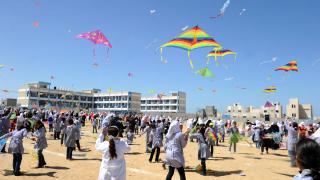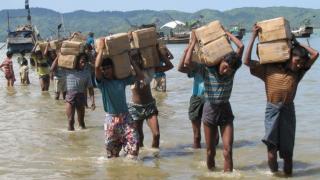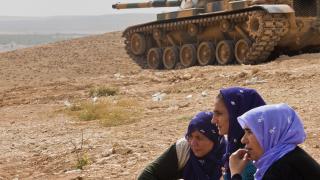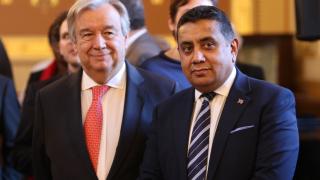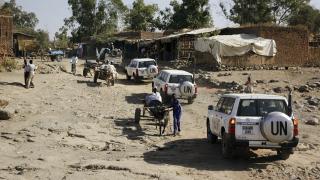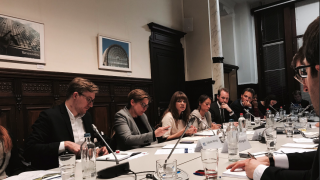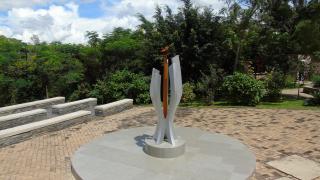
UNA-UK is pleased to be joining practitioners in preventing atrocities from around the world next week in Entebbe, Uganda to discuss how to make atrocity prevention a reality.
UNA-UK’s Outreach and Campaigns Officer, Laurel Hart, will be representing UNA-UK at the Global Action Against Mass Atrocity Crimes' third meeting (GAAMAC III)- an important opportunity for states, civil society and experts to discuss how to strengthen the international community's ability to prevent atrocities.
This year's meeting will focus on 'empowering prevention'. It will bring together state representatives, UN officials, NGOs and academics to share best practices, generate ideas on how to deliver concrete actions and strategies for the prevention of atrocities and discuss ways to strengthen national prevention architectures and policies.
UNA-UK has been working on atrocity prevention for some time. In light of recent parliamentary inquiries that have exposed the UK as failing to ensure sufficient prevention strategies, UNA-UK recently repeated its call for the UK to make atrocity prevention a policy priority, pointing out that the lack of a cross-Government mechanism to prevent and address mass atrocities has led to actions that have on occasion been inconsistent - or in direct contradiction to - the UK's international commitments.
UNA-UK, alongside other organisations working in the field, have made the case for a comprehensive strategy for the prevention of atrocities. UNA-UK suggested that a “Joint Unit” (between the Foreign and Commonwealth Office and the Department for International Development) - or a similar mechanism - could develop and support to enhance government capacity for early warning, and could in turn improve the UK's response to atrocity crimes.
In view of the UK's recent decision to carry out limited military strikes in response to the alleged further use of chemical weapons by the Assad regime, the UK's Foreign Affairs Select Committee (FAC) launched a parliamentary inquiry into the principles of the responsibility to protect and humanitarian intervention to consider the grounds under which military intervention can occur for humanitarian purposes. Alongside other NGOs working on atrocity prevention in the field, UNA-UK submitted written evidence, reiterating its call for the UK to make preventing atrocities a strategic priority.
Commenting on the role of member states in protecting civilian populations from atrocity crimes, UNA-UK argued that UN member states "have not fulfilled their commitment" to protect civilians, citing a number of countries where there are credible allegations of actions which, if established in a court of law, would amount to atrocity crimes.
UNA-UK pointed to the UK's response to the alleged use of chemical weapons in Douma as an example of where the UK's selectivity gives rise to concerns that the UK might be applying a 'hierarchy of atrocities' where chemical weapons use is prioritised over other war crimes and crimes against humanity. It also raises questions about the thresholds and conditions that prompt responses in relation to Syria and to atrocity prevention more broadly.
On the question of humanitarian intervention as an exception to the prohibition on the use of force, UNA-UK recommended that the UK Government clarify its legal and doctrinal position with respect to use of force and demonstrate how they see the UK's attitude to the use of force as compatible with international standards, norms and law. It also argued that military intervention for humanitarian purposes should be considered in terms of its outcomes; namely how it impacts civilians who are at risk of atrocities. The cure must be preferable to the disease and there must be a strategy for the long-term future of the area of intervention. In such circumstances the UK Government should take every reasonable step to secure international support for their action.
In such circumstances the UK Government should take every reasonable step to secure international support for their action. While action at the UN Security Council is likely to be blocked, there are other mechanisms – such as the “Uniting for Peace” General Assembly procedure – that may prove productive, and in any instance it is important that the UK engage with elected Security Council members and members of the wider General Assembly to demonstrate good faith and secure the backing of the broadest possible coalition in support of any action they wish to take.
Alongside its call for written evidence, the FAC convened a panel of expert witnesses to give evidence on the Responsibility to Protect and humanitarian intervention.
Remember to follow @laurelrhart on Twitter for updates from GAAMAC III.
Find out more about UNA-UK's atrocity prevention work.
Photo: Kigali Genocide Memorial/Laurel Hart

